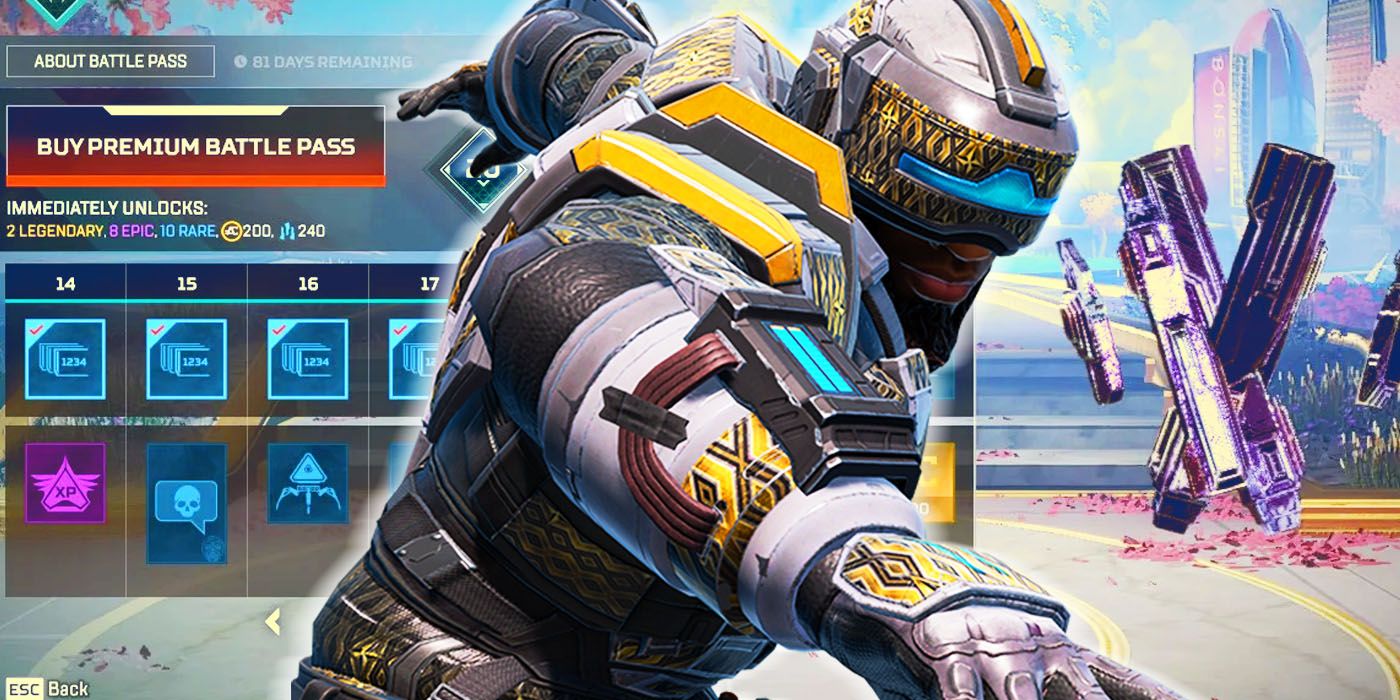
In the past few years, the battle pass has become the primary way for many games to find post-launch financial revenue. The system, which will typically require gamers to complete daily and weekly challenges to unlock in-game items at various levels, has many problems that can hurt players' experience of the game. Despite this, battle passes are still by far the best option game developers have to keep their work profitable after launch.
While the concept existed in some form as early as 2013, battle passes became a juggernaut of gaming with Fortnite: Battle Royale, which gave players a two-tiered, multi-leveled reward system. While there were cosmetics and in-game currency available in the free tier, players looking for the best rewards could (and still can in Fornite's Season 3, Chapter 3) pay to unlock the premium battle pass and win even more rewards. Since then, most multiplayer games have introduced battle passes in some degree, with even Halo Infinite adding battle passes, to mixed reception. Despite the flaws in the system, the battle pass trend is likely to continue for some time.
What Makes Battle Passes Terrible
Share your videos with friends, family, and the world You leap out of a pelican at top speed,. Fortnite battle royale might be much more popular, but there's a.
The core purpose of a battle pass is to give players a feeling of progression as they unlock new cosmetics or currency to spend on items. While this isn't a problem on its own, a major downside to many battle pass systems is the daily and weekly challenges that are required to level up. To make the battle pass different from standard levels in the game, developers will typically make the challenges for battle passes separate from typical win conditions. This translates to frustration in-game, as some players might pass up victories to take actions they need to level their battle pass.
The separate free and premium tiers have also been criticized, as some battle passes like Halo Infinite's season 1 pass provide very few customization options for free players, with the majority of armor unlocks being kept in the paid pass. Even with Halo's season 2 improving upon the previous season, the game has struggled to keep players invested. While players shouldn't expect the free tier to contain as much content as the paid tier, those not willing or able to pay for the pass can feel slighted if it seems like developers are unwilling to give free players anything interesting.
The season model, popularized by Fortnite and kept in almost every game, exploits the fear of missing out, making players who want the highest tier rewards grind through challenges for hours before the pass expires, and then it's on to the next season. For games with slow battle pass progression or tedious unlock conditions, players can easily burn out trying to unlock the items they want, spoiling the experience of playing the game. The system can also come across as predatory, especially when gamers are offered ways of paying to level up the pass.
Why Battle Passes Are Still Better Than Other Options
is halo better than fortniteWhile the battle pass system can seem frustrating and exploitative, the system still manages to be better than what has come before it. Most modern gamers might not remember when multiplayer games would introduce paid DLC map packs, which could end up killing a game's player base by separating out those who paid for new maps from those who didn't. Despite the problems of its current tier system, PlayStation Plus used to only provide players with online play. Games like World of Warcraft have also seen worse monetization though requiring paid subscriptions in order to continue playing as well as releasing expensive expansion packs.
Where battle passes truly look the best is when comparing them to loot boxes. The monetization system of loot boxes has drawn enough criticism that countries are warning companies to limit their practices. While battle passes can be criticized for keeping highly sought-after items in paid slots of the battle pass, gamers having a guarantee of when they can get the desired legendary cosmetic is preferable over having to spend real money on a loot box with only a chance at the item. Loot boxes are so despised that EA earned an infamous World Record for defending them.
No matter how developers go about it, gamers will likely never fully accept the way games look to continue making money after launch. Despite the flaws and frustrating design behind battle passes, it seems as though developers have finally found the best answer for keeping revenue up while continuing to provide additional game content for fans. With a near-unanimous agreement on keeping items affecting gameplay from being in battle passes, the largest benefit the system has is its optional status for those not interested in the newest cosmetics, allowing gamers to enjoy playing what they love for longer than ever before.
